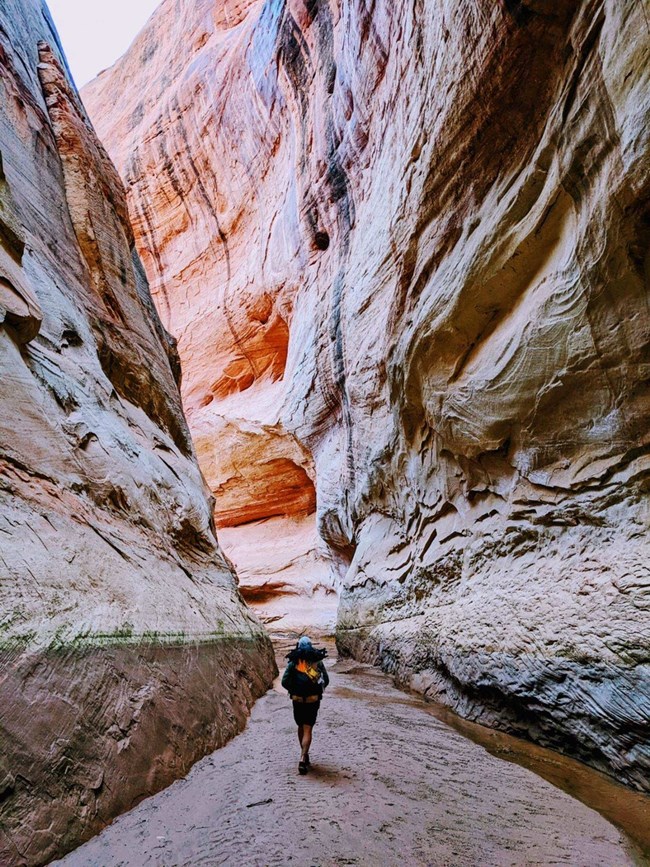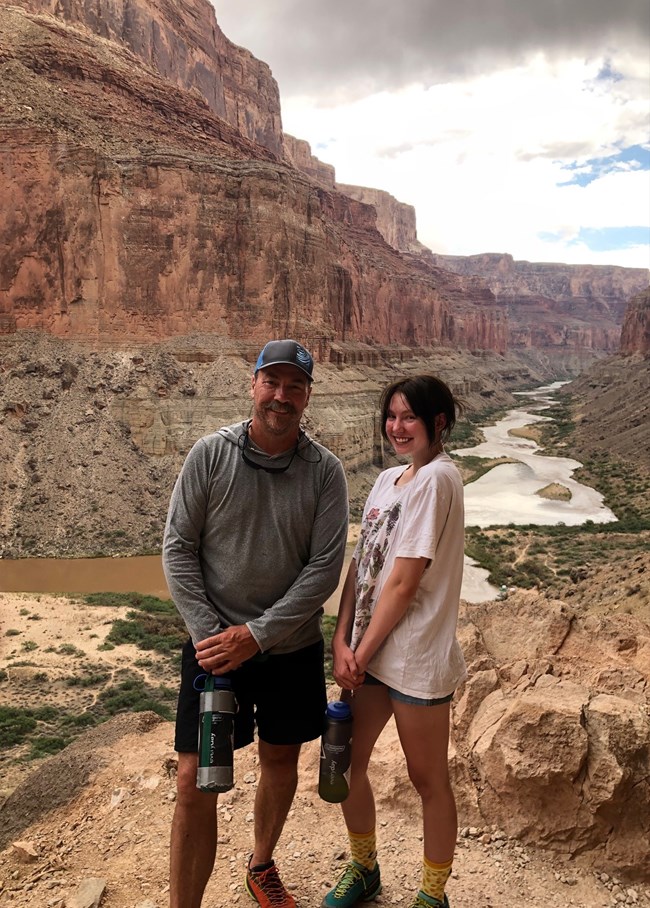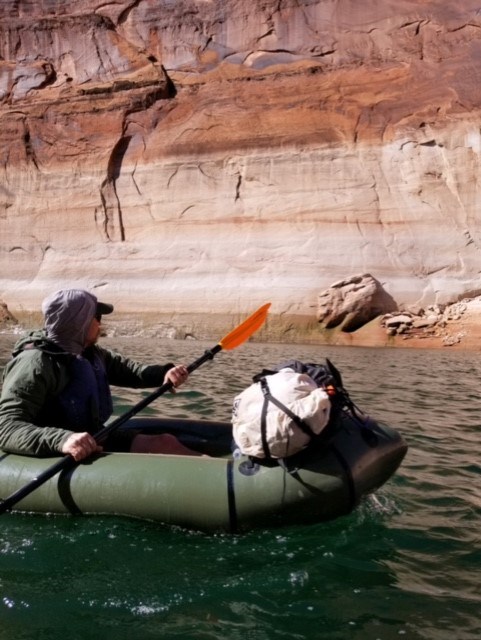Last updated: August 28, 2023
Article
My Park Story: Steve Henry

NPS/Steve Henry
Where are you from? What was your pathway to the National Park Service(NPS)?
I was born in Columbus, GA. But my stepfather was in the military, so we moved around until finally settling in his home state of Utah. I have called the Colorado Plateau home for the last 35 years. I made my way to the Park Service by accident. After two other career paths I took a job with the BLM. During that time, I was encouraged to apply for a SCEP position with GLCA, so I did. That was 16 years ago.
What interested you in the park service?
My family went to National Parks when I was a kid. It was always a part of family vacations and road trips. I guess I never stopped. The idea of being able to work at one myself and do things I like to do in a place that I love for a living was a no brainer.
What do you do for NPS?
I am a backcountry ranger in the Escalante District of GLCA and the Wilderness Coordinator for all GLCA. My time is roughly split 70/30 respectively. As a ranger I patrol rivers, canyons and plateaus. Mostly on foot, occasionally in a boat. Among other things, I educate, search, rescue, monitor and clean. Sadly, there is a lot of cleaning. As a coordinator I monitor, do compliance work for projects and endeavors occurring in the 589,000 acres of proposed wilderness in GLCA and hopefully help preserve and protect the wilderness characteristics of those lands.
How has the wilderness at Glen Canyon sparked a connection with something or someone important to you?
I would like to think I have connected with many people over the years. Talking about this place, it’s history and management with visitors.My dad was lucky in that he got to float “the Glen” in high school before the gates of Glen Canyon Dam closed. The more I learned about the area, the more we would pour over maps and share stories of our experiences. That was certainly an important connection for me.

NPS/Steve Henry
Describe a time when wilderness at Glen Canyon helped you feel most like yourself.
The canyons in and around GLCA have always been my “happy place”. My first experience here was on Lake Powell (1983, “full pool”, I saw Steven’s Arch from the bow of my grandfathers’ boat). That was first of many trips for me. My first backpacking trek into the GLCA backcountry was in 1989 and that’s when I realized how incredible this place was. Although I have seen many beautiful rivers, mountain ranges and forests since then, none have had quite the same allure.
Describe a was a time wilderness introduced you to a new view, sound, feeling, or idea.
I had the opportunity to sit on the Intermountain Region Wilderness Executive Committee from 2010-2013. I learned a lot about different aspects of wilderness management on a larger scale. It was eye opening and changed the way I looked at the wilderness lands here in GLCA.
What projects have you done within Glen Canyons Wilderness that you're proud of or what do you find most rewarding?
There have been several things that I’m proud of I suppose… a park wilderness web page, in-park wilderness trainings, a Wilderness Character Narrative and more. Of course, you don’t do those things alone. It takes help from specialist, web designers, planners and so on.
Probably the most rewarding thing though is when you can change the way people think about wilderness. Too often, wilderness is seen as the “land of NO”, be it in the way it is experienced by the public, or, by the way it is managed. The Wilderness Act states A wilderness, in contrast with those areas where man and his works dominate the landscape, is hereby recognized as an area where the earth and its community of life are untrammeled by man, where man himself is a visitor who does not remain. The in contrast part sticks out for me. When people realize that some areas should be experienced differently (no roads, no amenities) and managed with humility, then what may have been seen as a hurdle can be seen as a positive attribute. I find that rewarding. It can require advanced ethics. As Aldo Leopold said, “Ethical behavior is doing the right thing when no one else is watching- even when doing the wrong thing is legal.”
What advice do you have for youth and young adults thinking about a career at NPS?
Volunteering and Internships never hurt. You probably won’t get rich, but you may find yourself looking forward to going to work in the morning. I do.

NPS/Steve Henry
Do you have any hobbies outside of the NPS?
Backcountry skiing, river running, cooking and watching weird movies.
Do you remember the first park you visited?
I’ll never forget it. Carlsbad Caverns. I was five. I had a bowl of chili in the cafeteria and by the time I got out of the elevator I no longer had my bowl of chili. If you were in the elevator with me…. I’m sorry…. still.
What is your background? College? Study?
Sociology, Psychology, Wilderness Management and healthy dose of dirt bag climbing.
Any favorite or funny memories of the job?
Too many.
